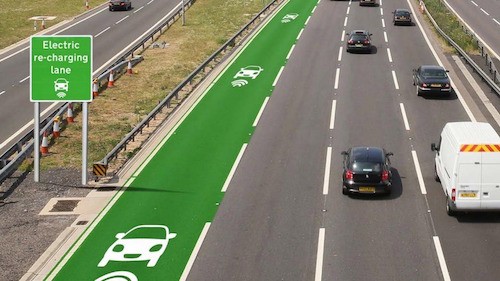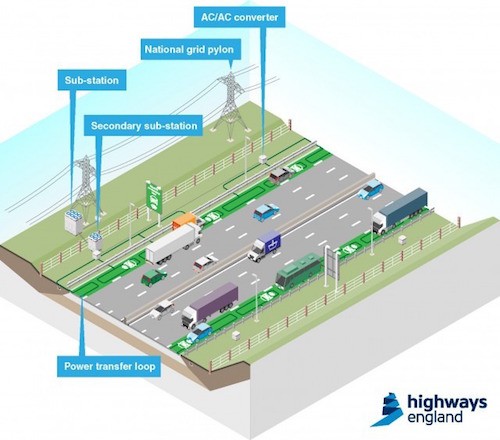England set to test car-charging motorways
The common shortcoming of electric cars has always been that they can’t hit the same range that more commonplace fuel injected cars can. Currently, some of the best electric-only cars can hit a total range of around 260 miles (approximately 418 kilometres) whereas the old fuel-reliant variety can hit ranges of 300 miles (approximately 483 kilometres) or more.

While the current total range of electric cars is actually quite impressive given the comparative youth of the technology, it’s biggest issue pertains to the lack of readily available charging stations. Some countries do have charging stations in public car parks and other facilities, but it’s still a technology lacking in proper adoption.
One way Highways England, a government agency, is hoping to turn the tide is by testing a type of road/motorway that can charge an electric car as it drives over it. The technology will be tested in controlled conditions via private roads, ideally starting somewhere between 2016 and 2017.
During the initial trials, vehicles will be fitted with wireless technology and special equipment will be installed beneath roads to replicate comparable motorway conditions. Electric cables buried under the surface will generate electromagnetic fields, which will be picked up by a coil inside the device and converted into electricity.
In total, the test will run for approximately 18 months before Highways England determines whether or not the technology is feasible to be installed into public motorways and major A roads.

While the project is ambitious, it isn’t without its detractors. Director of Cardiff Business School’s Electric Vehicle Centre of Excellence, Dr Paul Nieuwenhuis, believes the project’s ambitions could lead to excessive costs. “Cost will be the biggest issue and I’m not totally convinced it’s worth it,” Dr Nieuwenhuis said.
Further elaborating: “Battery technology is increasing – if you look at what Tesla has achieved in recent years, it keeps adding more [travel] range to battery technology roughly every six months. So, it’s not clear there’s even a need for this.”
It’s a fair point. If the technology behind electric cars means they’re consistently increasing their overall range at a steady rate, they could deem such projects as Highways England’s somewhat redundant. That said, no matter how far electric cars ultimately end up being able to travel after one charge, they always need to be recharged.
So whether in the form of a motorway that can charge an in-motion vehicle or a more plentiful supply of car chargers in public spaces, the growing popularity and use of electric cars means that infrastructure needs to change to cater to them.